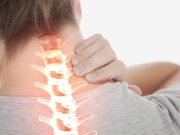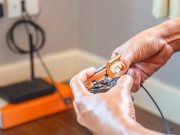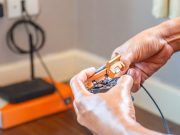The nursing field is on a perpetual journey of advancement and improvement. Innovative methods and fresh ideas have sparked significant advancements in healthcare. With dedication, researchers are on a quest to master the most up-to-date evidence-based techniques that deliver real results.
These developments are laser-focused on elevating patient care and enhancing the operation of healthcare facilities. A prime example of such a trend is evidence-based practice (EBP). Though not a brand-new concept, ongoing research continues to enrich and refine this method. Its widespread implementation is largely due to the tangible successes witnessed by healthcare professionals.
What is Evidence-Based Practice?
Evidence-based practice stands at the forefront of healthcare innovation, anchored by scientific proof. It weaves together the insights from peer-reviewed research, hands-on experimentation, seasoned expertise, and feedback from patients themselves to inject new life into healthcare routines.
Instead of settling on one-time fixes, evidence-based practice emphasizes the integration of solid research into the routine delivery of medical services. It has gained traction in the nursing profession for its ability to provide reliable, high-quality care with measurable outcomes.
How do Nurses Implement Evidence-Based Practice?
Evidence-based practice has become a cornerstone in nursing education, from undergraduate to graduate levels, fostering a culture of superior care and equipping nurses with the necessary knowledge and skills to make well-informed decisions.
Nursing programs, particularly online in the United States, are strong proponents of evidence-based models, offering comprehensive guides for nurses to follow safe and effective practices.
Nurses today are trained to apply scientific findings and critical thought to accurately evaluate their patients. There are five key steps to this approach in nursing:
Ask the right questions to your patients. By pinpointing the pertinent inquiries about a patient’s symptoms, you pave the way to a treatment plan tailored for their recovery.
Acquire information relevant to the condition and possible treatments, sourcing from scientific research to back your clinical decisions.
Appraise the collected information critically. Scrutinize the data to affirm its validity and suitability for your patient’s circumstances.
Apply your appraised knowledge with expertise and sharp critical thinking. Ensure that you deliver the highest standard of care as you put this knowledge into action.
Assess the effectiveness of your intervention with EBP. Monitor the outcomes for any strengths or weaknesses and consider whether this method could benefit other patients.
Evidence-based practice finds its place in various clinical scenarios encountered by nurses daily. Here are examples of EBP in action:
Administering oxygen to patients with chronic obstructive pulmonary disorder (COPD) for an improved quality of life, as supported by scientific findings.
Educating patients on safety measures to reduce health risks at home, from preventing injuries to avoiding infectious diseases.
Monitoring patients before and after providing medications, considering an individual’s medical history to avoid adverse reactions.
Recommending a balanced diet rather than the limited BRAT diet (bananas, rice, applesauce, toast) for children with gastrointestinal issues, promoting proper nutrition and hydration.
How does Evidence-Based Practice Impact Nursing Care?
The influence of evidence-based practice on nursing is far-reaching and profoundly positive, benefiting both the caretakers and those they serve. Here’s how EBP is reshaping the nursing realm:
Improving patient outcomes through better communication between nurses, patients, and families, leading to an enhanced understanding and care experience.
Encouraging perpetual learning as nurses stay abreast of healthcare evolutions and skill advancements essential for effectively applying EBP.
Sharpening critical thinking as nurses match evidence to a patient’s specific health condition, crafting more personalized and precise care strategies.
Stimulating research endeavors within nursing, ensuring practitioners are proficient in gathering and interpreting scientific data.
Enhancing risk management by equipping nurses with exhaustive research and planning capabilities to forestall and mitigate potential therapy-related risks.
In Summary
Evidence-based practice is redefining traditional medicine by advocating for scientifically backed and more effective treatment methods. In promoting both research and analytical thinking among nurses, EBP has dramatically risen in esteem and application, making a lasting mark on the healthcare industry and the nursing profession.
































